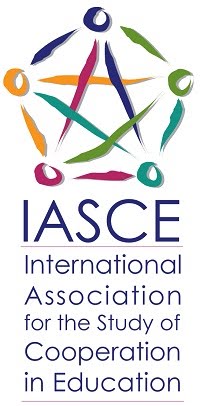IASCE CONFERENCE 2013The Transformative Power of Co-operation in Education4, 5 & 6 July 2013Faculty of Education, University of Hull, Scarborough Campus, England The IASCE—in co-operation with the School of Education at the University of Hull, England and the International Association for Intercultural Education (IAIE)—is please to invite you to the 2013 international conference, The Transformative Power of Co-operation in Education. For over 30 years, the IASCE has led the way in highlighting and disseminating research and practice in co-operative learning. For this conference, we invite proposals that examine the power of co- operation from a broad range of perspectives. We invite proposals that focus on students, teachers, classrooms and schools, as well as communities, co-operative enterprises, and regional and national entities. Goals of the conference include
The 2013 conference is an opportunity for practitioners, academics, and representatives from
community organizations to participate in an event that is designed to encourage dialogue and
reflection through intentional interaction. Please see the main Conferences and events page for details of how to register for the conference. The Transformative Power of Co-operation in EducationThe Conference StrandsThe conference strands intend to promote stimulating sessions on topics relevant to co-operation in all aspects of education. Across all strands, we welcome proposals that integrate experiences, examples and study that demonstrate the following:
Strand 1: Transforming school, college and university classrooms through co-operative learning This strand invites sharing of methods, materials, programmes, projects and research that relate to the implementation of high quality co-operative learning in all content areas and stages/grade levels of education. Proposals might address issues such as:
Strand 2: Co-operative pedagogies: Transforming teacher education This strand invites proposals that focus on teacher education and teacher professional development. Proposals might address issues such as:
Strand 3: Co-operative catalysts: Transforming schools and communities This strand focuses on the promotion of co-operation and the development of social competence for all ages, for example, to enhance participation, resolve conflicts, promote active citizenship and develop intergroup ‘social capital’. It is intended to embrace a wide range of activities inside and outside schools and within the wider community for the purpose of social change. Proposals might address issues such as:
Strand 4: Co-operative dispositions: Transformative solutions for diversity and inclusion (with IAIE) This strand, organized in conjunction with IAIE, focuses on ways that co-operative learning supports and facilitates teaching and learning for diversity and inclusion at all levels of education. Proposals might address issues such as:
Strand 5: Co-operative innovations in the arts, with technology, and to enhance creativity This strand invites proposals about incorporating co-operation in the arts, examining co-operation and communication with the use of technology, and exploring the intersections of co-operation and creativity. Proposals might address issues such as:
Strand 6: Transformative policy: Supporting local/regional/national and organisational policy This strand focuses on how educational policy can be a key part of transforming schools, other educational organisations and the wider community when co-operative approaches are adopted. Proposals may address topics such as:
The Transformative Power of Co-operation in EducationSession FormatsWorkshop (90 minutes) The purpose of a Workshop is to provide an opportunity for participants to learn by doing and reflecting.
Workshop facilitators are asked to consider carefully how to link theoretical frameworks to carefully designed
experiential work that is co-operative and interactive. Roundtable Discussion (45 minutes) The purpose of a Roundtable Discussion is to maximize dialogue around a particular idea or project. A Roundtable Discussion takes place with “presenters” and participants seated around a table. The discussion format allows maximum interaction by eliminating a formal presentation and emphasizing dialogue. It is an ideal format to receive feedback about your work, to learn about the work of others, and to network. Several Roundtables are scheduled simultaneously in a large meeting room. Presenters are encouraged to bring posters, student work, and/or copies of their own work or papers to display or distribute at their table. Paper Session (typically three papers will be grouped together in a 90 minute session) The purpose of a Paper Session is to provide authors with an opportunity to share the main ideas and
conclusions of their work, whether these are theoretical, programmatic or the results from a study of any kind.
A maximum of 20 minutes will be allotted to each paper. Authors are encouraged to make use of visual aids
and to focus on a few main points about their work. Details related to statistical analyses, implementation
design, and literature reviews, should not be presented orally and visually, but should be included in written
papers to be distributed to interested participants at the conference or electronically afterwards.
The conference committee will group papers. However, groups who wish to propose a session with three
related papers are encouraged to do so. Interactive Dialogue (45 or 90 minutes) The purpose of an Interactive Dialogue is to address a specific topic or problem in a format meant to stimulate
focused dialogue. |
|
|










